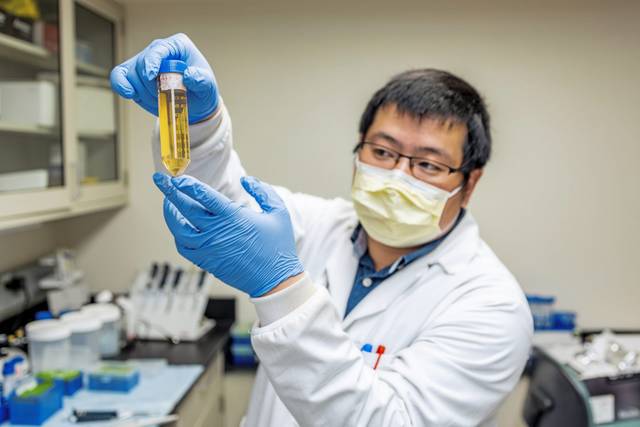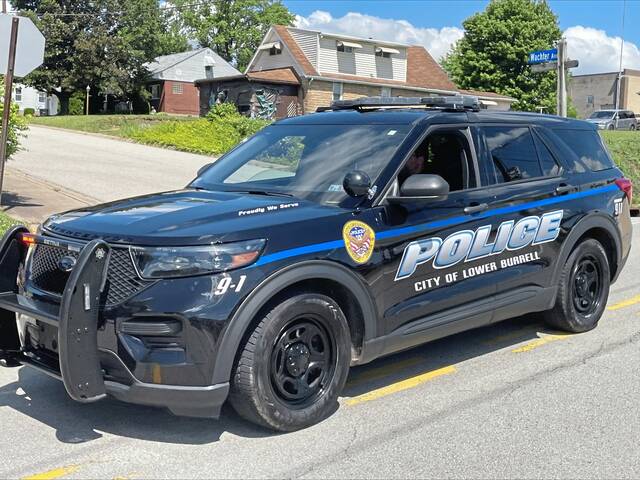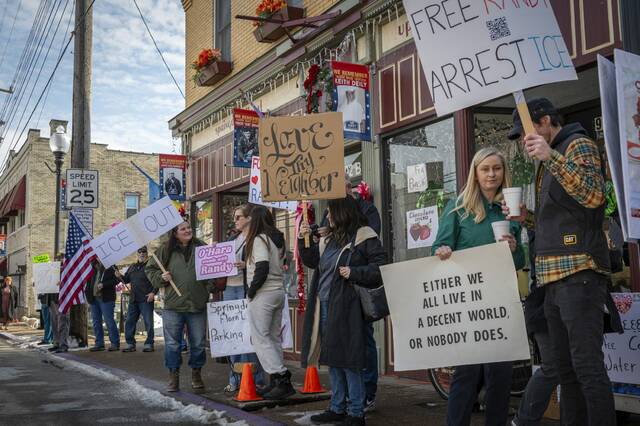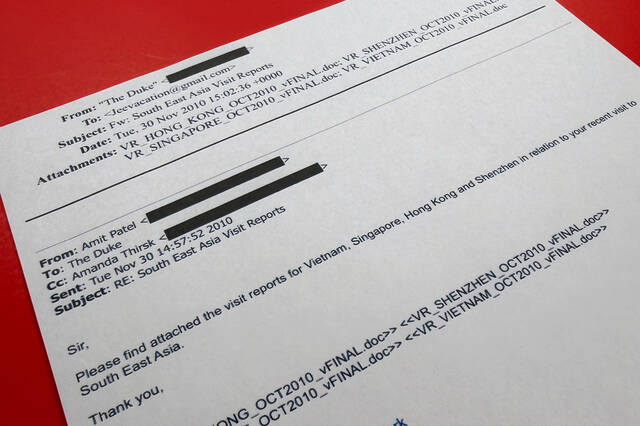Pittsburgh scientists as soon as next year could begin testing in humans a breakthrough drug they say has the potential to stop the pandemic by treating — and even preventing — the virus that causes covid-19.
The drug’s foundation is a tiny but potent antibody that can block the virus from infecting cells. The drug, called Ab8, has been effective in preventing and treating covid-19 in mice and hamsters. Human clinical trials could begin in early 2021.
At a news conference Tuesday, UPMC officials said the drug will be especially helpful to vulnerable patients who wouldn’t respond as well to a vaccine, such as the elderly or those with compromised immune systems.
“When we give a vaccine, we induce lots of different antibodies of different potency,” said Dr. John Mellors, chief of infectious diseases at UPMC and Pitt. “Here, with this antibody, we’re giving a uniform, potent biomolecule that’s sole function is to block the virus.”
Development of the antibody began in February at Pitt’s Center for Antibody Therapeutics, Mellors said, “before covid-19 was a household name.” Ab8 builds on the research of Dimiter Dimitrov, director of the center. His research dates back to 2003 when he discovered antibodies that had a neutralizing impact for SARS, a viral respiratory illness first reported in Asia.
Dimitrov’s team has since discovered antibodies that battle a host of other infectious diseases including MERS, dengue, Hendra and Nipah viruses. Like covid-19, SARS and MERS both are caused by various coronaviruses.
But the molecule composing Ab8 is unique, the researchers said. It is especially small — about 10 times smaller than a full antibody — which means it can penetrate into areas of the body where a full-sized antibody may not. The antibody works by preventing spikes on the covid-19 virus from binding to human proteins, the scientists explained.
Mellors said the antibody is extremely potent; it appears to be long-lasting. It’s also “fully human,” he said. As a result, it will not bind to any human proteins and there is no foreign material that would be rejected by the human immune system, making it appear safe for use.
“The small size means that we can treat or prevent infection in more people with a set amount of protein, because we need less of it,” Mellors said. “And this is extremely potent, and so we should be able to have a greater impact, and we also may be able to deliver the antibody by alternative means than in the vein.”
Those delivery methods include an injection under the skin or inhalation, he said.
While the drug is intended for both treatment and prevention of covid-19, the researchers said it is not meant to replace a vaccine, which is also in development at UPMC and elsewhere. Vaccinations are more cost effective and able to be distributed across a population, he said. Both a vaccination and a drug like Ab8 will be critical to reducing the impact of covid-19, especially among vulnerable populations whose immune systems need help beyond a vaccine.
“The patient population that needs the vaccine the most is the least likely to respond,” said Dr. Steven Shapiro, chief medical and scientific officer at UPMC. “The antibody will provide that.”
UPMC officials said their vaccine, PittCoVacc, is also nearing clinical trials. Scientists worldwide are racing to produce a safe and effective vaccine.
Mellors said it is too early to estimate the likely cost of Ab8, but added that the cost of manufacturing antibodies is rapidly decreasing as scientists develop a greater ability to produce them. He said he hopes the development of Ab8 and other antibodies will have lasting benefits for scientists, making them “armed and ready” for any virus that could cause a pandemic in the future.
“There are very, very, very few silver linings to covid,” Mellors said. “But one of them will be: the world will be better prepared to produce … vaccines and antibodies to treat this pandemic and, heaven forbid, the next one.”








